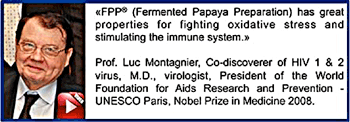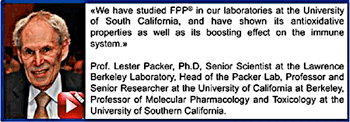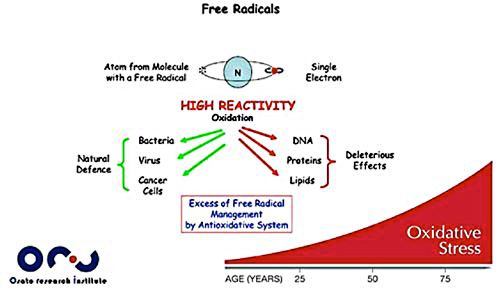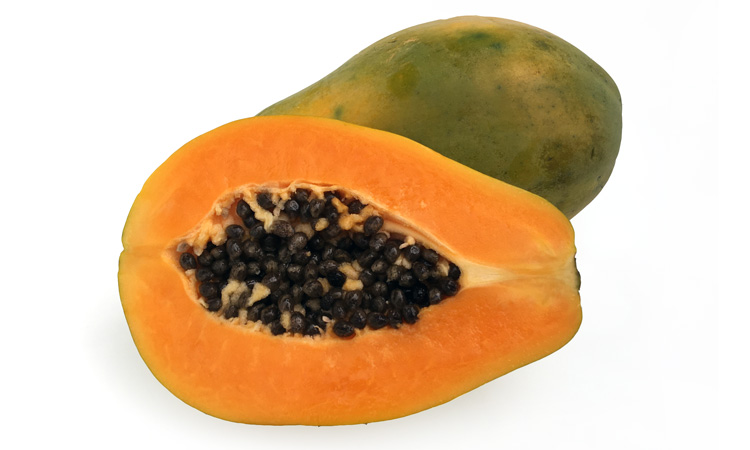Supports the immune system
The immune system is a physiological system that protects your body against diseases and infections.
To function properly, the immune system must detect a wide variety of invading agents, known as pathogens, ranging from viruses to parasitic worms, and distinguish them from the organism's own healthy tissue. However, the efficiency of our immune system decreases as we grow older, and must be kept active and strong in order to defend our organism against pathogen attacks on a daily basis.
Aging, but also stress, overwork, weight-loss or unbalanced diets, and diseases can weaken our immune system.
World-renowned researchers have scientifically proved that FPP® supports the immune system.
 
|
Supports the antioxidative system
The antioxidative system is
a physiological system within an organism
that protects against oxidative stress.
Free radicals are unique atoms or molecules that have one or more unpaired electrons in their outer shell. Very unstable and highly reactive, they are potentially dangerous to the body as they are looking to recover an electron by oxidizing biomolecules such as proteins, lipids, carbohydrates, and important cellular components such as DNA. There are several ways by which free radicals are formed. Once formed, these free radicals initiate their own reactions and the chain reaction that is produced further increases their potentially harmful effects on the body.
Free radicals are not systematically harmful as they are normally produced by the body for specific purposes such as energy production and immune defense. Indeed, most free radicals are involved in the maintenance and functioning of the organism and play a major role in the defense against bacterial and viral invasion as well as against tumor cells. In this case, they act as ‘good radicals’.
However, when in excess, they are destructive and may cause irreversible damage to both the structural and metabolic functions of the organism’s biomolecules. This damage is called oxidative stress. In this case they can be considered ‘bad radicals’, as they become involved in the development of diseases and/or the production of non-specific changes that may eventually result in malfunction and faster aging.
The free radical status of an organism can be defined as the total sum of both ‘good’ and ‘bad’ changes produced by free radical reactions. An overload of free radicals could be dangerous to the human body. However, the human body has a defense system to fight against free radicals and carefully regulate them: the antioxidative system.
The antioxidative system is a complex network of many inter-reactive compounds involving enzymes, vitamins, minerals, etc. It plays a crucial role as it continuously fights the causes of a broad spectrum of serious diseases such as Alzheimer, Parkinson, cancers, and more.
The role of our antioxidative system is to provide us with the antioxidative capacity that protects our cells by destroying excess free radicals.
The balance between our antioxidative system and free radical attacks will progressively be destabilized by aging, environmental factors, illnesses or aggressive treatments (i.e. radiotherapy, chemotherapy) leading to oxidative stress.
FPP supports our antioxidative system by enhancing its two main antioxidative enzymes and by directly destroying excess free radicals.

|





